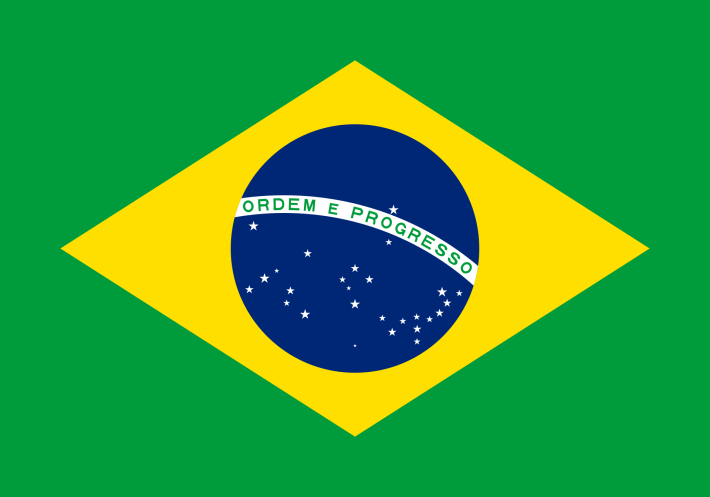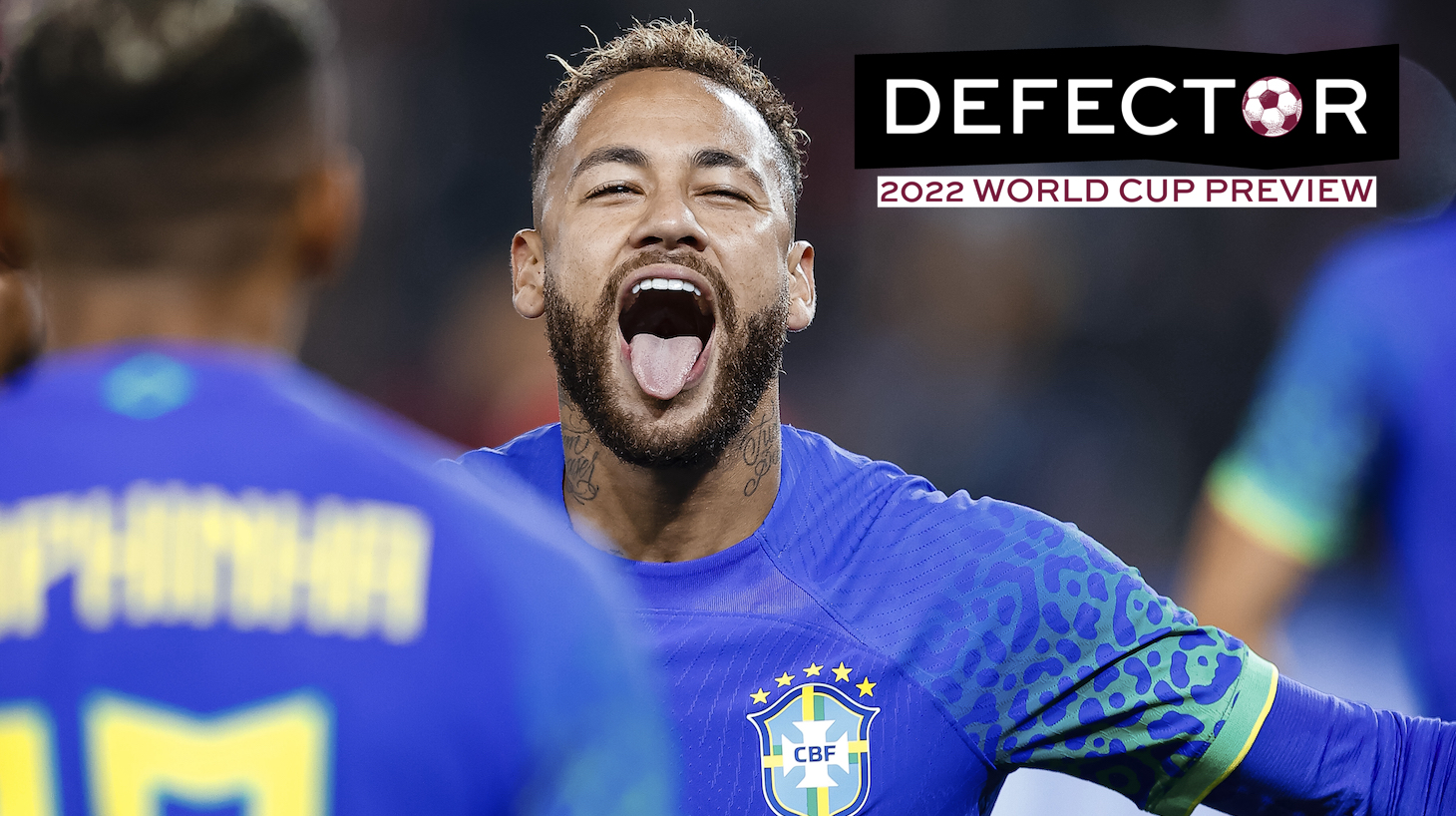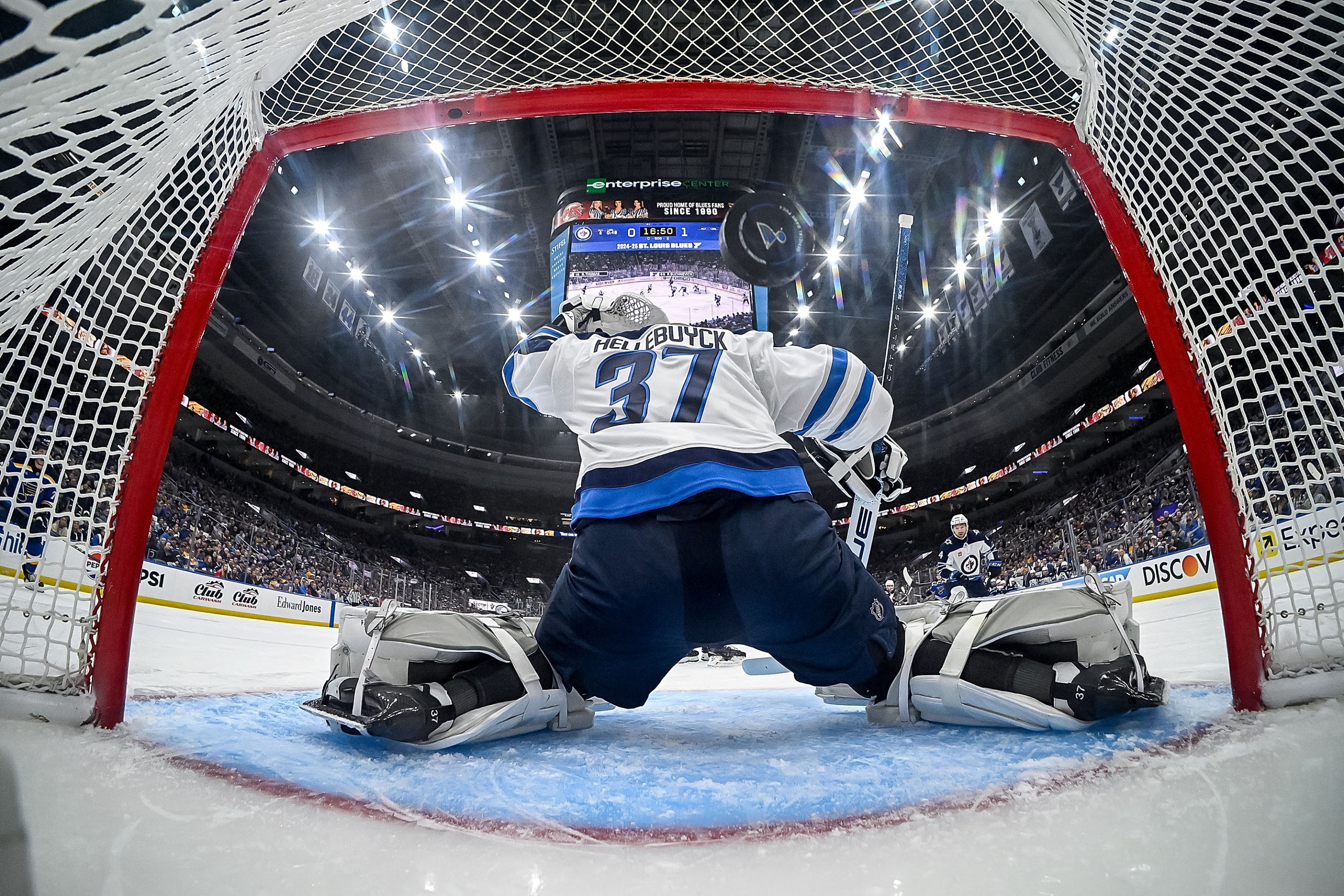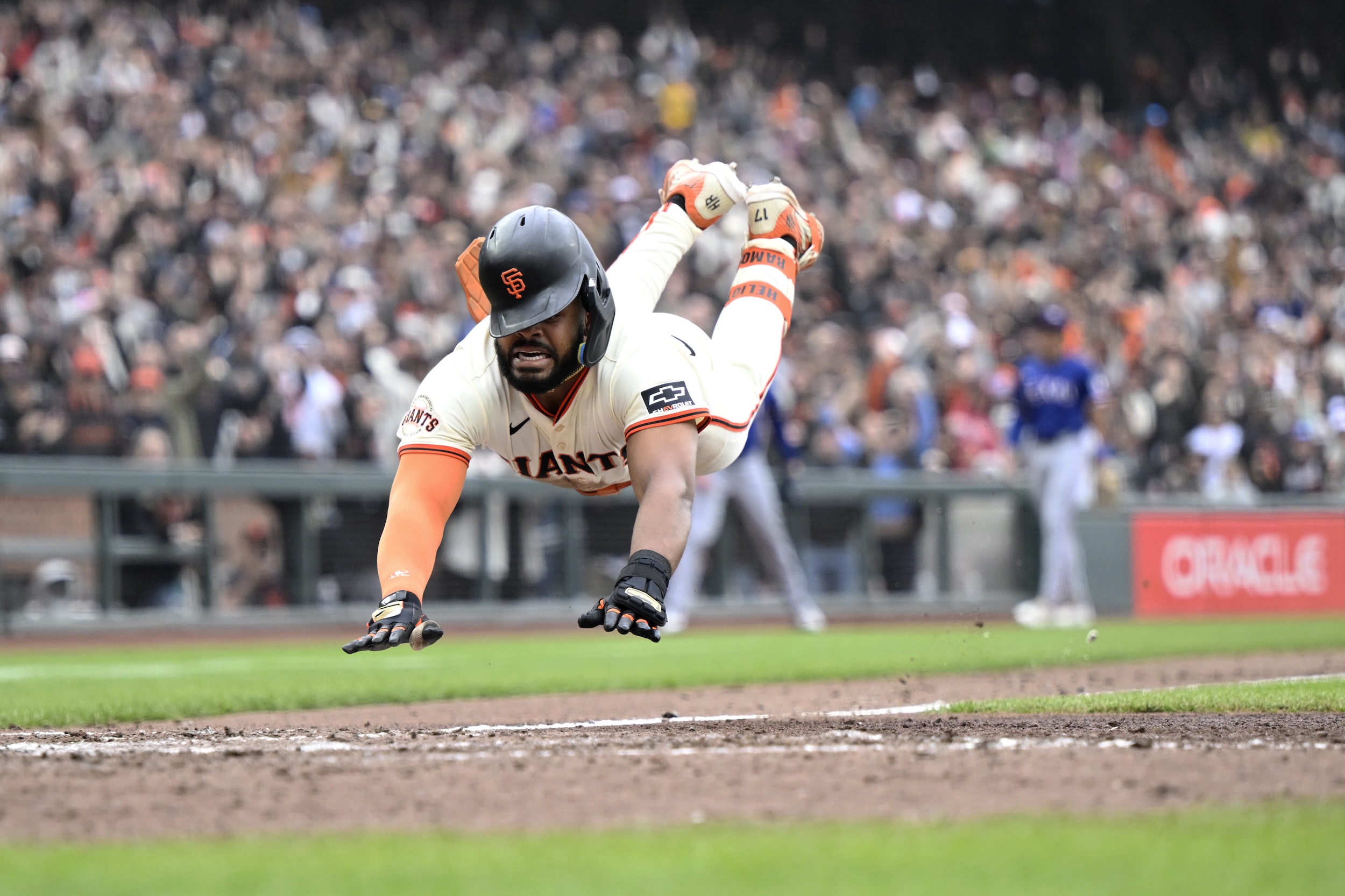It’s almost time for the 2022 World Cup. To help get you ready, we will be providing you with precious information about every team in the tournament. You can read all of our World Cup previews here.
The pieces are all there. The starting lineup is fantastic. The bench is deep. The superstar is as big as they come, and is currently shining at his brightest. The manager is smart, respected, and has been around long enough to really instill his ideas. The camaraderie appears to be there. Everything Brazil would need to return the country to greatness, which for this national team means nothing less than winning the World Cup, it has. No team enters the 2022 World Cup in a stronger position to win than Brazil, the odds-on favorite to do just that.
But the pressure on Brazil, which makes it unique in the soccer world, extends beyond merely winning. Don't get me wrong: Brazilian fans are desperate to see the Canarinha win. The Brazilians' last World Cup triumph came in 2002. The 20 years that separate then from now make it Brazil's second-longest barren stretch in the post-war era, behind only the 24 years between their victories in 1970 and 1994. For Brazil, which considers soccer to be a quaint English pastime that required Brazilian adoption and perfection for it to become the globally dominant spectacle it is today, the national team is long overdue for another title in the sport that, in their minds, rightfully belongs to them.
Yet winning alone is not always enough. It's instructive to look at that other World Cup drought for comparison. Though longer than the current stretch, Brazilian soccer in the title-less period of the 70s and 80s was actually much better off than the one the country is presently mired in. Those were the days before 1995's Bosman ruling gutted South American soccer by allowing European leagues, no longer so constrained by stringent pre-Bosman squad nationality rules, to ransack their South American counterparts for much of the continent's talent. In those times, the Brazilian domestic league and its big clubs were amongst the very strongest in the world. Amazing players sprouted up everywhere, like weeds of roses, and the bulk of them spent the majority of their careers at home, blossoming and blooming under the Brazilian sun. The game was beautiful and it was theirs. And the Seleção, though ultimately unable to conquer the world's tournament, reflected this, most memorably in the futebol arte of the beloved 1982 team that has gone down as one of the greatest national teams to never win the World Cup.
Relief finally did arrive in 1994. A Brazil led by defensive midfielder Dunga and forwards Romário and Bebeto ended the nation's long drought by giving their country its fourth World Cup title, the first one since the trio that Pelé and Co. had won. You might imagine the feat would've made the team national heroes. Instead, Brazilians at home found little to love in the Seleção's cautious, defensive style of play. The team's play was, in a word, boring—and if the quintessence of Brazilian soccer is anything, it is expressly not boring.
In the lead-up to the 1994 tournament Brazil fans and the national media slammed manager Carlos Alberto Parreira's staid tactics and conservative team selection. During the trophy presentation, Dunga, who captained the team, taunted the assembled media while hoisting the trophy: "This is for you, you treacherous bastards! What do you say now?" Of Brazil's five World Cup–winning teams, the 1994 one is by far the one remembered with the least affection, as the least Brazilian Brazil.
There is no doubt that the current Brazil could repeat 1994 and become world champions next month. It is, however, not clear if their style of play would see them honor the best of the country's heritage or if it would look more like 1994. Brazil is certainly capable of playing like the Brazil of yore. Neymar himself is pure samba, the embodiment of what anthropologist Gilberto Freyre meant in 1938 when he described the essence of Brazilian soccer like so:
Our style of football seems to contrast with the European style because of a set of characteristics such as surprise, craftiness, shrewdness, readiness and I shall say individual brilliance and spontaneity, all of which express our mulattoism. Our passes . . . our tricks . . . that something which is related to dance, to capoeira, mark the Brazilian style of football, which rounds and sweetens the game the British invented, the game which they and the other Europeans play in such an acute and angular way.
And Neymar's not the only one in the squad with a passion for flair and fun. The newly unchained Gabriel Jesus embodies this tradition, as does Antony and Vinícius and Rodrygo and Raphinha and Lucas Paquetá. All of those players thrive in the functional game that historically defines South American soccer, a game of dribbles and close proximity and interplays and give-and-gos and gorgeous moves and goals. The question, then, isn't one of ability, but rather one of intent.
Tite, who has managed Brazil since 2016 now, is by any reckoning a very intelligent manager. Under his leadership the Canarinha has played in a multitude of different styles, almost all of them well-implemented and successful. You can find evidence of the soundness of his methods and the trust he's earned from his players and the greater Brazilian public in the fact that he failed to win the 2018 World Cup and yet has continued coaching the team since then without much controversy.
But while Tite is a good manager, it's not so obvious whether he's a good Brazilian manager, at least under Freyre's definition of Brazilianness. Though Tite's early Brazil teams did play an open and attractive style, his group has since developed in more restrained, positional, quasi-European direction. The results mostly support his shift. Brazil won the 2019 Copa América, got to the final of the 2021 Copa, and went undefeated in World Cup qualifying, winning 14 of its 17 matches. Soccer is of course primarily about the players, but Tite's management is part of why Brazil is rightly considered the favorite to win in Qatar.
Tite's conservatism could very well help lead this Brazil, the best roster the country has brought to a World Cup since 2006, to the glory it's waited so long for, just as Parreira's conservatism did in 1994. Decisions like playing a midfield of Casemiro and Fred instead of dropping one for the more inventive Bruno Guimarães, or even benching a superstar like Vinícius in favor of a less adventurous lineup featuring an additional midfielder could be what helps Brazil break its 20-year duck. But those choices could also backfire if either an overly restricted Brazil fails to play up to its biggest strength—the attack—and winds up losing, or if the Seleção wins the trophy in Qatar but fails to win hearts back in Brazil. Especially in soccer's current paradigm, which looks so skeptically upon traditionally Brazilian freedom and expression on the pitch (it's no coincidence that Neymar, Vini, and Antony have found themselves on the receiving end of verbal and physical rebukes for their temerity to play like Brazilians while in Europe), it would be nice to see Brazil blow away the rest of the competition playing the soccer they're famous for.
And there's a decent chance that everything could come together for Brazil in Qatar, too. Vinícius's explosion over the past couple seasons, as well as Guimarães's star turns at Newcastle this year, could be enough to force Tite's hand when making his lineups. And combine those two with Neymar and one of Raphinha or Antony, and Brazil practically can't help but play some classic jogo bonito.
At any rate, regardless of all the stuff about beauty and national identity and the rest, the most important thing at this World Cup for Brazil itself is to win. As the Four Four Two article that details the unloved 1994 team's history notes, those skeptical Brazilians back home who weren't particularly moved by the team's play still celebrated that title as if it was, well, a World Cup victory. And even Romário, Brazil's most rebellious player of that title team who was famously no fan of boring soccer, has since admitted that he eventually came around. "Parreira had to win the World Cup, so he formed the team the way he wanted," Romário said. "It's not necessarily the one the fans or me liked, but it did the trick."
Who Is Their Main Guy?
I think I've already written enough long odes to Neymar's way of playing (which, it's worth mentioning, is not necessarily the same as his way of living) for now, so I'll make this one short. However, I do want to take the opportunity to shine a little light on what's probably his most underrated skill: his passing.
Neymar Júnior - Football Magician 🪄 pic.twitter.com/apYbfYvi49
— ⋆𝗡𝗲𝘆𝗺𝗼𝗹𝗲𝗾𝘂𝗲 🇧🇷 (@Neymoleque) November 11, 2022
Neymar is best known for his dribbling, but his passing is arguably even more notable for how utterly singular it is. No one in the world can match the full breadth of his passing arsenal—the range of distances, the accuracy with both feet, the usage of all different parts of each foot, the vision, the quickness of thinking, the quickness of execution, the variety of locations he passes from, the inventiveness, the lack of repeated patterns, everything. When Neymar is on the ball he's like a walking infinity. You don't know what he's going to do, because he very well could do anything. You don't know what it's going to look like because he's probably going to do something he's never done before, even in more or less the exact same scenario. All you can do is wait for him to choose and hope for the best.
Who Is Their Main Non-Scoring Guy?
Because Paris Saint-Germain plays in a league very few non-Frenchies follow closely, and because PSG is best known internationally for their high-profile choke jobs in the Champions League, players at the club often do not get the acclaim their talents deserve. This effect hampers the reputations of even established greats like Neymar and Marco Verratti, but I think no PSG player suffers more from this Ligue 1 tax than Marquinhos.
Marquinhos is practically the perfect central defender. He is strong, fast, and smart. He is good when defending high up the pitch and he's good when hunkered down in his own penalty area. He tackles well, he's a great shot-blocker, and he rarely makes mistakes—something that, for instance, has harmed the big-game performances of his more heralded Brazil teammate, Thiago Silva. If anything, when the going is at its toughest, and when the defense is at its most chaotic, Marquinhos is usually at his best.
And as required of a modern center back, Marquinhos is also great with the ball. He's such a gifted passer (and such a versatile defensive presence) that he's even spent lots of time at PSG playing as a defensive midfielder. Had he done what he's done in Paris in England or Spain, Marquinhos would probably be right there up with Virgil van Dijk as the consensus picks as the world's best center backs.
It's the possession and attacking ability of Marquinhos, combined with those of defense-minded teammates like Silva and Casemiro, that helps Brazil be a great offensive threat even when Tite puts out a conservative lineup. The names of Brazil's defense might not be as big as those of its forward line, but with the back line's enviable skill set, displayed most clearly by Marquinhos, Brazil's defense should prove one of the world's best.
Where's The Beef?
Which teams or players does Brazil not like? Do Brazil's players like each other? We investigate their potential enemies.
It's fitting that this World Cup feels like a golden opportunity for both Brazil and Argentina, the protagonists of the international game's biggest rivalry. For the first time in many World Cups, the South Americans are ascendant while the Europeans are a little flat. A win would end Brazil's 20-year drought, while a title for Argentina could possibly mean its native son Lionel Messi solidifying his claim of being the greatest soccer player of all time. (Naturally, his only two rivals for that distinction are Diego Maradona and Pelé, an Argentine and a Brazilian.) The stakes are ridiculously high, and the opportunity is almost too good to miss. And, should both teams take care of business as they're expected to, they are all set up to meet each other in the semifinals.
The fact that Brazil and Argentina are the two big favorites, and could very well face each other in the semis, must make this tournament exciting and also terrifying for fans of both national teams. The only thing better than Brazil or Argentina winning the World Cup is one of them winning the World Cup while beating the other along the way. And, on the flip side, the only thing worse than losing at the World Cup would be losing to the other, who then goes on to win it.
From a neutral perspective, the best possible outcome of this tournament—even above which team ends up becoming champion—would be Brazil and Argentina playing in the semis. As someone with a strong rooting interest, who really likes Brazil and who absolutely loves Argentina, I absolutely do not want that happen. The anxiety would be way too high, and the prospect of either losing to the other—and, maybe even worse, of one winning the semifinal and going on to lose the final—would be way too sad for me to bear. And I'm just some American poseur. I shudder to think what it would be like for those with deeper ties.
Most Likely To Go David Ospina Or James Rodríguez Mode
Who is Brazil's best candidate for a breakout performance that earns them a career-changing transfer? Might this potential post-tournament transfer go well, like when Colombia's James Rodríguez went to Real Madrid after starring in the 2014 World Cup? Or could it go poorly, like when Colombia's David Ospina went to Arsenal after starring in the 2014 World Cup?
In a previous age, one that came to an end a little over a year ago, Bruno Guimarães would be one of the hottest tickets in soccer. The 24-year-old deep-lying playmaker has taken the Premier League by storm since joining Newcastle United last January. After impressing at Lyon to not much fanfare (there goes that Ligue 1 tax again), it took Guimarães no time at all to prove that he is arguably the best young defensive midfielder on the planet. He is a strong defender, a crafty interior dribbler, and a wondrous passer—and, in an unexpected (and possibly fluky) development, he's even shown himself a remarkable scorer for someone who plays so deep.
As I said before, in the olden days, all of that would make Guimarães one of the most coveted midfield prospects in the world. Back then, he'd probably already be a shoo-in to become Sergio Busquets's replacement at Barcelona. But those days ended in October of 2021, when Newcastle was officially purchased by Saudi Arabia. Without Saudi Arabia's money, Guimarães almost certainly wouldn't have even come to Newcastle in the first place. And with all that Saudi money around him, there is little chance anyone—Barcelona, Real Madrid, Manchester City, PSG, anyone—could pry Bruno away even if they tried.
But that doesn't matter right now. For now, it only matters that Bruno may have balled so hard in England that he'll jump straight into the Brazil starting lineup in Qatar. His passing acumen and mobility would be a godsend for this Brazil, which sometimes suffers when its less pass-savvy midfielders Casemiro, Fred, and Fabinho have trouble advancing the ball up the pitch. Guimarães's presence should prevent Neymar from having to drop so low to help move the ball forward, which would in turn keep him higher up the pitch where he and his attacking teammates can do the most damage. The best possible Brazil team is one that features Guimarães, and if Guimarães gets them playing at that level, there will be a whole lot of major clubs wishing it were possible to snag him away from Newcastle.
James Rodríguez Mode Probability Score: N/A
David Ospina Probability Score: N/A
Fun Geographical Fact
South America is made up of 12ish countries. (French Guiana, technically just an international territory, accounts for the "ish.") Each one of those, except for Ecuador and Chile, shares a border with Brazil. This is one big-ass country.
Good Flag Or Bad Flag?

Brazil has one of the best flags in the world—yet another place where Brazil and Argentina are rivals. Argentina's is better, but Brazil's is a beauty too.
Good Anthem Or Bad Anthem?
Outstanding anthem.
Notable Moment In World Cup History
After talking shit about it, let's give a little shine to that 1994 team. Most of that tournament run was as boring as the team's play: they scored a late winner to beat the tournament-hosting Americans 1–0 in the round of 16, scored a later winner to beat Sweden 1–0 in the semifinal, and won the final over Italy in a penalty shootout following a scoreless regulation period. But the quarterfinal match against the Netherlands was a thriller.
All five of the match's goals came in an action packed second half. First Romário opened the scoring with a nice half-volley on a Bebeto cross in the 52nd minute. When Bebeto capped a stretch of Brazilian dominance 10 minutes later with the match's second goal, it looked like Brazil might win in a romp. Instead, Dennis Bergkamp pulled a goal back just two minutes after Bebeto's goal. Aron Winter completed the Dutch comeback in the 76th minute with a header off a corner kick. But just five minutes after that, Brazilian left back Branco restored the Canarinha's advantage with a deep, deep strike from a free kick.
The highlights above are great in part because of how extremely 90s it all looks, but also because of Romário. If you haven't seen him play much before, I recommend checking out more highlights. The man was a god in the penalty area, maybe the best pure finisher ever, and his toe-poke is one of soccer's great signature moves.
How Can They Win The World Cup?
Easily?






